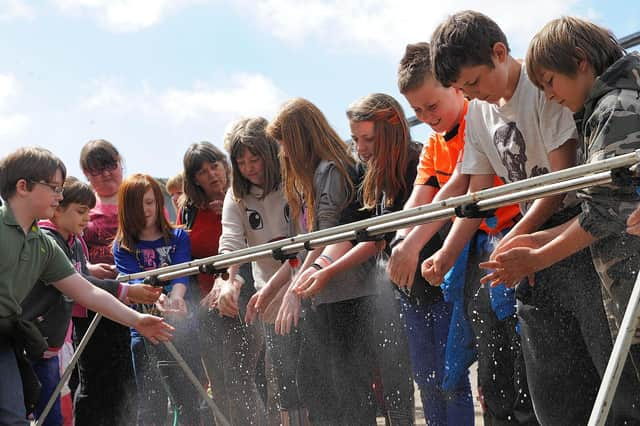Paper towels better than hand dryers for removing coronavirus


The European Congress of Clinical Microbiology and Infectious Diseases (ECCMID) which was planned to take place in Paris from 18-21 April but was cancelled due to the Covid-19 pandemic have now decided to publish studies that would have been presented.
The researchers say that hand drying is important to minimise the spread of dangerous microbes - including the novel coronavirus - since failure to remove them increases transfer to environmental surfaces and increases the opportunities for transmission and spread.
Advertisement
Hide AdAdvertisement
Hide AdIn this study, the authors from the University of Leeds investigated whether there are differences in extent of the virus transmission, according to hand drying method, beyond the toilet/washroom to the hospital environment.
Four volunteers simulated contamination of their hands and gloved hands using a bacteriophage (which is a virus that infects bacteria - and so is harmless to humans).
Their hands were not washed after contamination - this was to simulate poorly and inadequately washed hands.
Hands were dried using either paper towels (PT) or a jet air dryer (JAD).
Each volunteer wore an apron, to enable measurement of body and clothing contamination during hand drying. Hand drying was performed in a hospital public toilet and, after exiting, samples were collected from public and ward areas.
Environmental surface sites were sampled following contact with hands or apron.
The sites samples were doors (both push- and pull-type doors), stairs handrails, lift buttons, chairs in public and ward areas, phones, buttons on access intercoms to wards, stethoscope tubing, stethoscope head piece and chest piece, the aprons themselves, and armchairs that had been indirectly in contact with the apron.
For the latter, volunteers were asked to cross their arms across their chest while using the apron, before resting on the arms of the chair.
Advertisement
Hide AdAdvertisement
Hide AdThe team found that both JAD and PT methods statistically significantly reduced virus contamination of hands and for 10 out of 11 surfaces, significantly greater environmental contamination was detected after JAD versus PT use.
The authors conclude: “There are clear differences, according to hand drying method, in the residual microbial contamination of the subject’s hands and body.
“Crucially, these differences in contamination translate into significantly greater levels of microbe contamination after jet air drying versus paper towel use from hands and body beyond the toilet/washroom.
“As public toilets are used by patients, visitors and staff, the hand drying method chosen has the potential to increase (using jet dryers) or reduce (using paper towels) pathogen transmission in hospital settings.”
They also note their findings have particular importance since there has been a general migration from use of paper towels to hand dryers in many settings and areas of the world, especially within healthcare environments in the UK.
Both NHS guidelines and World Health Organisation hand washing guidelines recommend use of a paper towel to dry hands (and also using a paper towel to turn off the tap).
They conclude: “We believe that our results are relevant to the control of the novel coronavirus that is spreading at pace worldwide. “Paper towels should be the preferred way to dry hands after washing and so reduce the risk of virus contamination and spread.”
Comments
Want to join the conversation? Please or to comment on this article.
